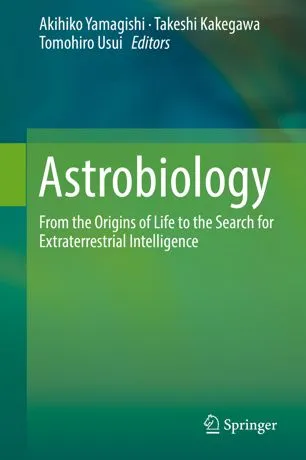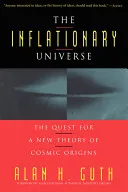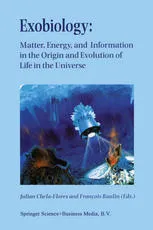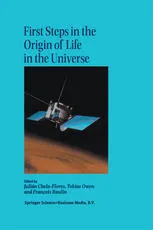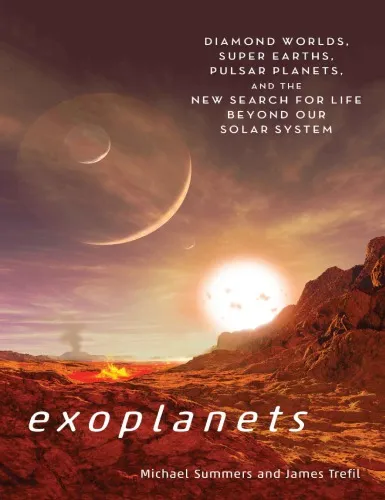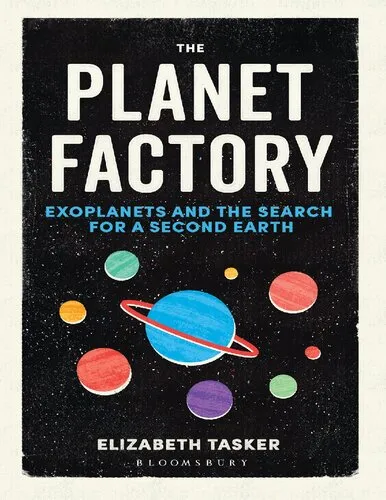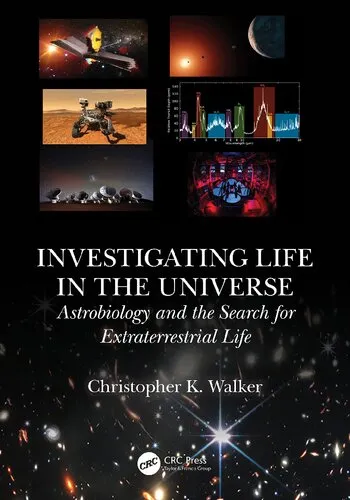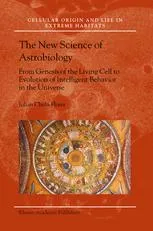Astrobiology: From the Origins of Life to the Search for Extraterrestrial Intelligence
4.5
Reviews from our users

You Can Ask your questions from this book's AI after Login
Each download or ask from book AI costs 2 points. To earn more free points, please visit the Points Guide Page and complete some valuable actions.Related Refrences:
Introduction
"Astrobiology: From the Origins of Life to the Search for Extraterrestrial Intelligence," authored by Akihiko Yamagishi, Takeshi Kakegawa, and Tomohiro Usui, offers readers a comprehensive guide to one of the most fascinating and interdisciplinary fields of science—astrobiology. This book deftly bridges the worlds of biology, chemistry, geology, physics, and astronomy to explore profound questions about the origins of life, its evolution on Earth, and the possibility of life beyond our planet. With a focus on both scientific rigor and accessibility, this text is designed for anyone curious about humanity's place in the cosmos, whether they are seasoned researchers or enthusiastic learners.
Astrobiology is an evolving discipline that examines life's adaptability and how life interacts with its environment in extreme and extraterrestrial contexts. Through a structured approach, the authors take readers on a captivating journey from the fundamental building blocks of life on Earth to sophisticated searches for extraterrestrial intelligence (SETI). This book stands out not only for its depth of scientific insight but also for its ability to spark the imagination, challenging readers to think about life's potential across the stars.
Detailed Summary of the Book
The book begins by venturing into humanity's earliest attempts to define life and understand its place in the universe. It dives into the origins of life on Earth, exploring seminal experiments, such as Miller-Urey's groundbreaking exploration of prebiotic chemistry. From there, it delves into life's incredible adaptability by highlighting organisms thriving in extreme environments, aptly referred to as extremophiles. The lessons learned from these extremophiles provide clues about where and how life might arise on other planets and moons.
The second portion of the book addresses the science of planetary habitability. This includes understanding what makes a planet or moon habitable, the importance of liquid water, and how atmospheres and magnetic fields influence a planet's ability to support life. The authors examine key celestial targets in the search for extraterrestrial life, including Mars, Europa, Titan, and exoplanets lying within the circumstellar habitable zones of distant stars.
Drawing from the latest advances in astronomy, chemistry, and planetary sciences, the book shifts to the innovative technologies and missions aimed at detecting biosignatures—indicators of past or present life. It also discusses the role of artificial intelligence and spectroscopy in spotting potentially habitable worlds.
Finally, the book explores SETI and the philosophical implications of detecting extraterrestrial civilizations. The authors raise questions about the societal and existential challenges that could arise from contact with intelligent aliens and ponder the ultimate question: Are we alone?
Key Takeaways
- Life on Earth serves as a template but not the limit of possibilities for extraterrestrial life.
- Extremophiles demonstrate how life adapts to harsh conditions, expanding our understanding of habitability.
- Mars, the icy moons of the outer solar system, and exoplanets are prime targets in the search for life.
- Detecting biosignatures and technosignatures is crucial in identifying alien life and civilizations.
- The search for extraterrestrial intelligence raises profound philosophical and societal questions about humanity's place in the universe.
Famous Quotes from the Book
"Life is not bound by Earth's limits; instead, it is bound only by the universal laws of physics and chemistry."
"To explore the cosmos is to explore ourselves, for we are made of star stuff."
Why This Book Matters
This book is a crucial addition to the scientific and philosophical discourse on life's place in the universe. Far from being niche, the subject of astrobiology touches on questions that resonate on a deeply human level. Are we alone? What makes a planet habitable? How does life emerge in the vastness of space? By offering readers answers grounded in cutting-edge research, Yamagishi, Kakegawa, and Usui connect the profound mysteries of the cosmos with the terrestrial roots of science.
With its thoughtful integration of numerous scientific disciplines, this book is not only a valuable academic resource but also a gateway for anyone interested in exploring the wonders of the universe. Whether you are a student, scientist, educator, or simply an enthusiast, "Astrobiology: From the Origins of Life to the Search for Extraterrestrial Intelligence" equips you with the knowledge to navigate some of life's most profound questions.
Free Direct Download
You Can Download this book after Login
Accessing books through legal platforms and public libraries not only supports the rights of authors and publishers but also contributes to the sustainability of reading culture. Before downloading, please take a moment to consider these options.
Find this book on other platforms:
WorldCat helps you find books in libraries worldwide.
See ratings, reviews, and discussions on Goodreads.
Find and buy rare or used books on AbeBooks.
1315
بازدید4.5
امتیاز0
نظر98%
رضایتReviews:
4.5
Based on 0 users review
Questions & Answers
Ask questions about this book or help others by answering
No questions yet. Be the first to ask!
